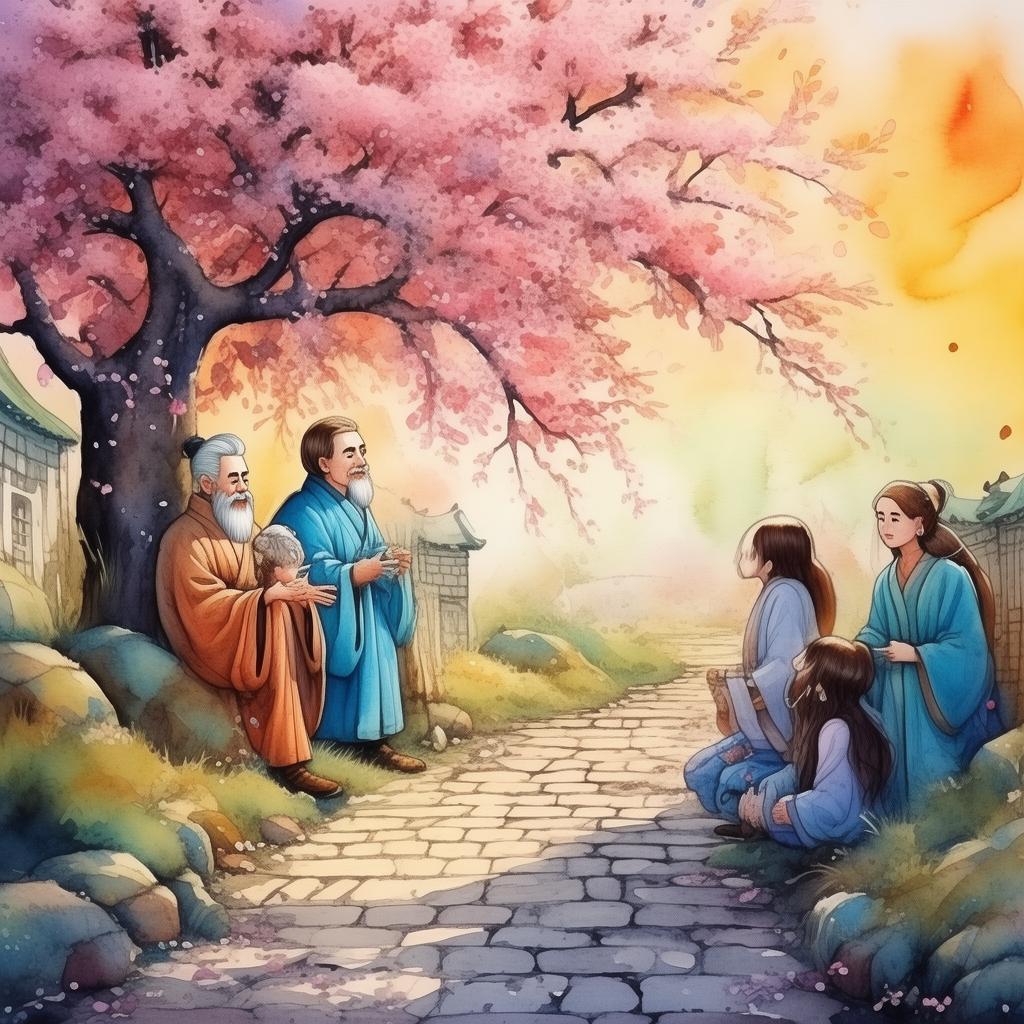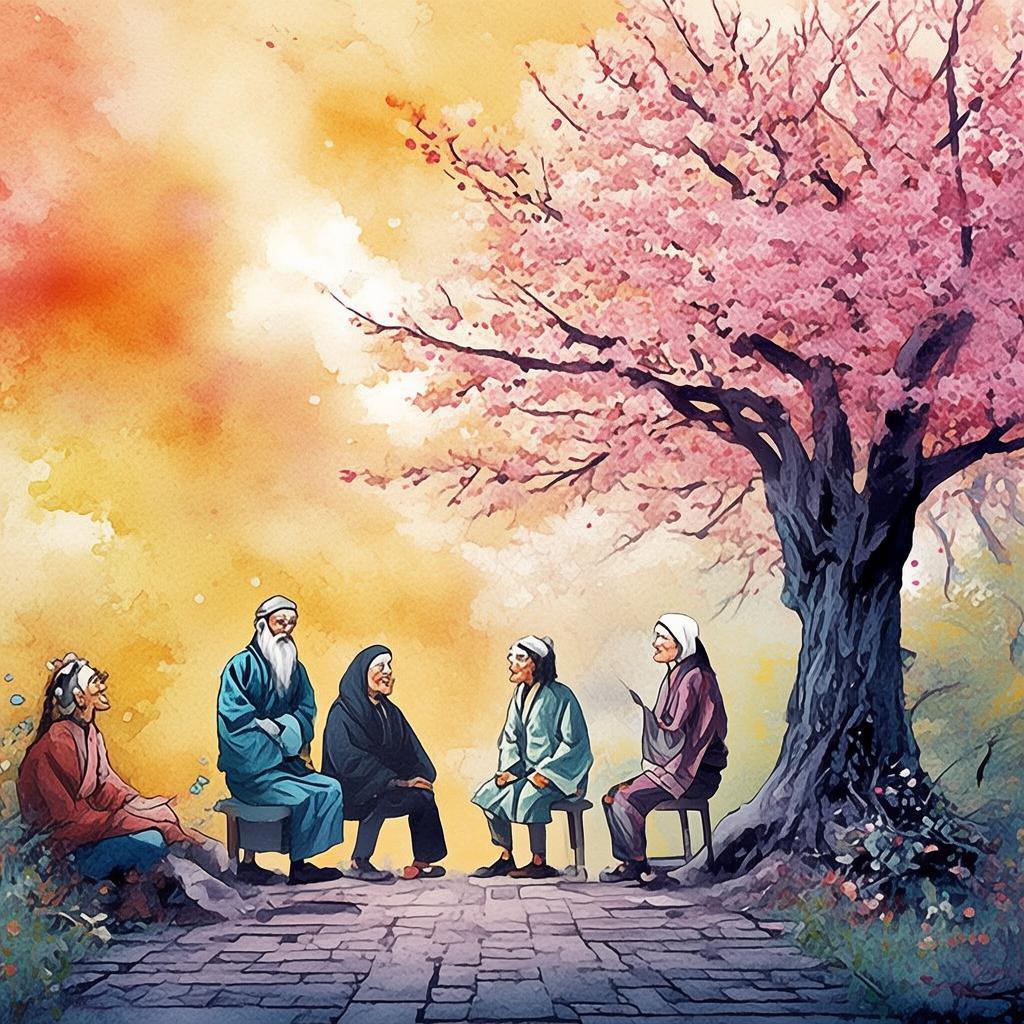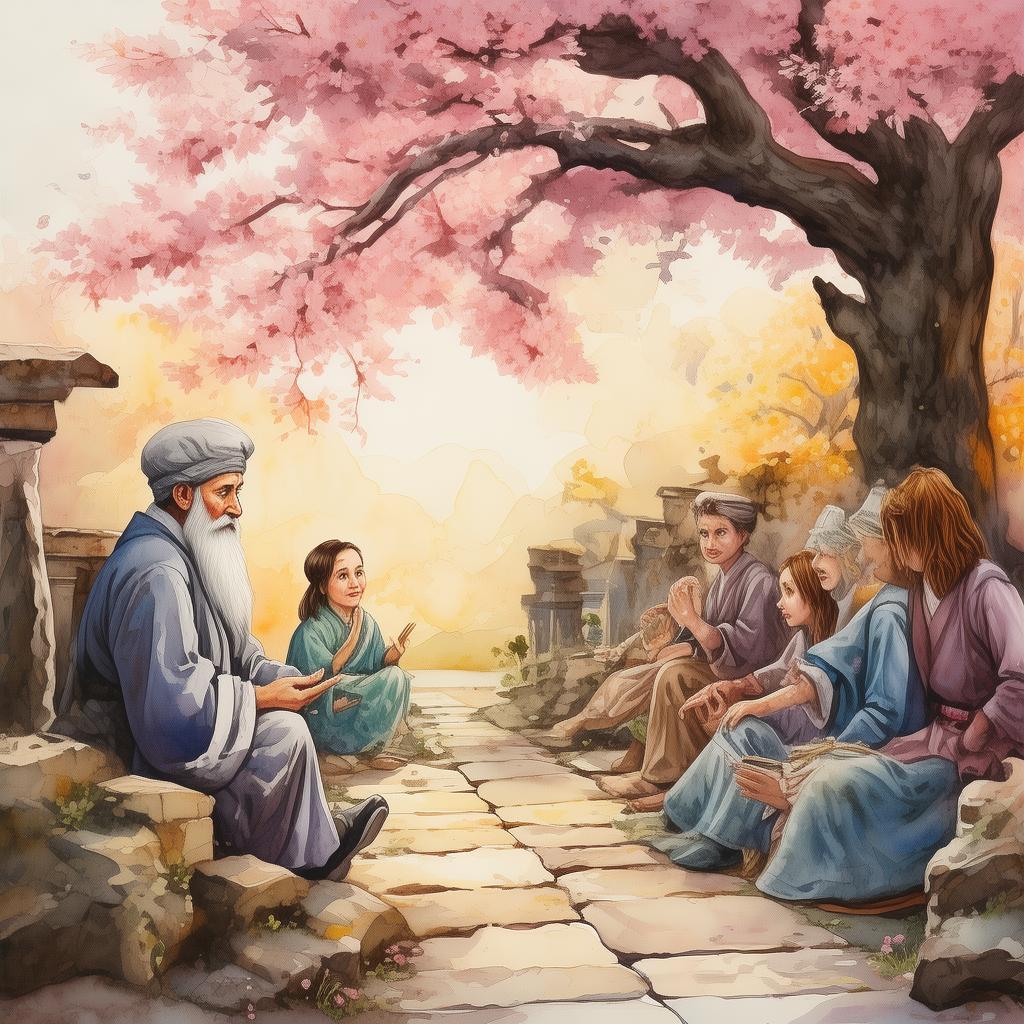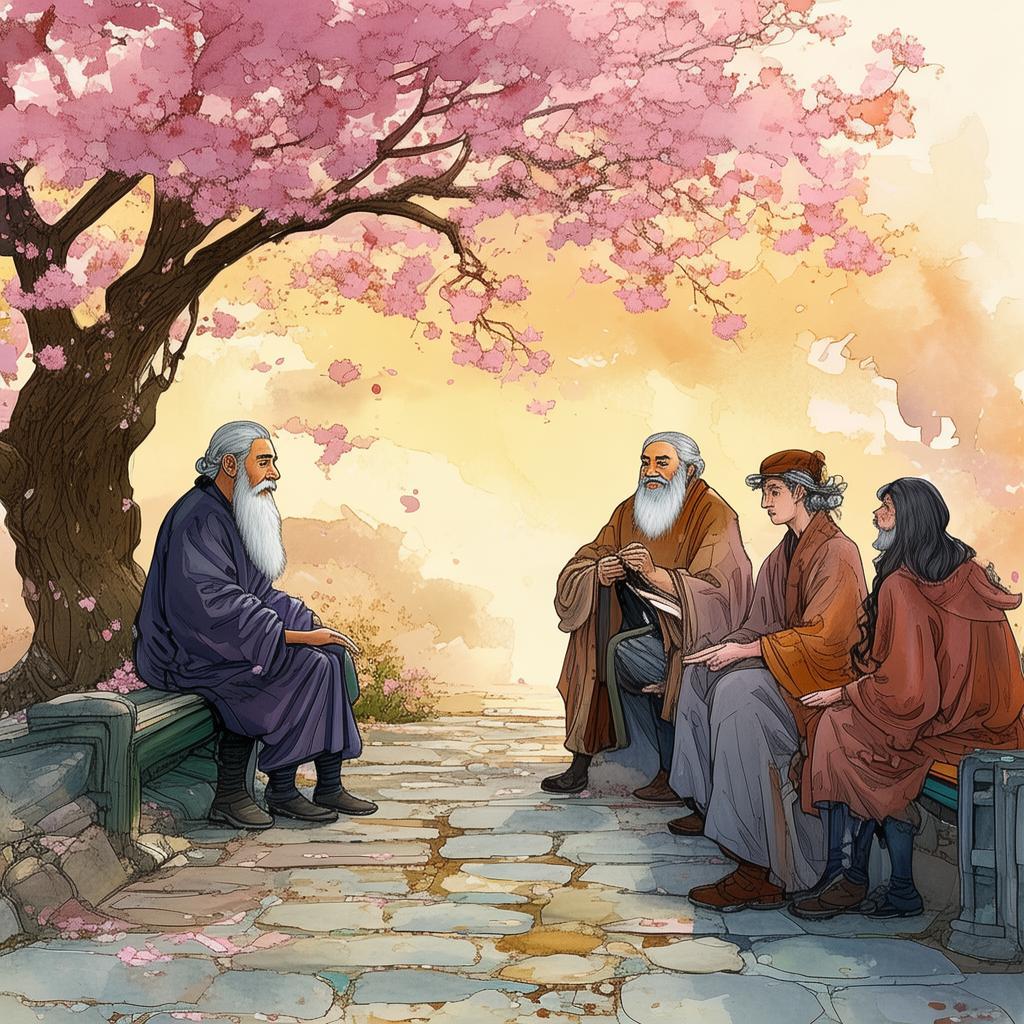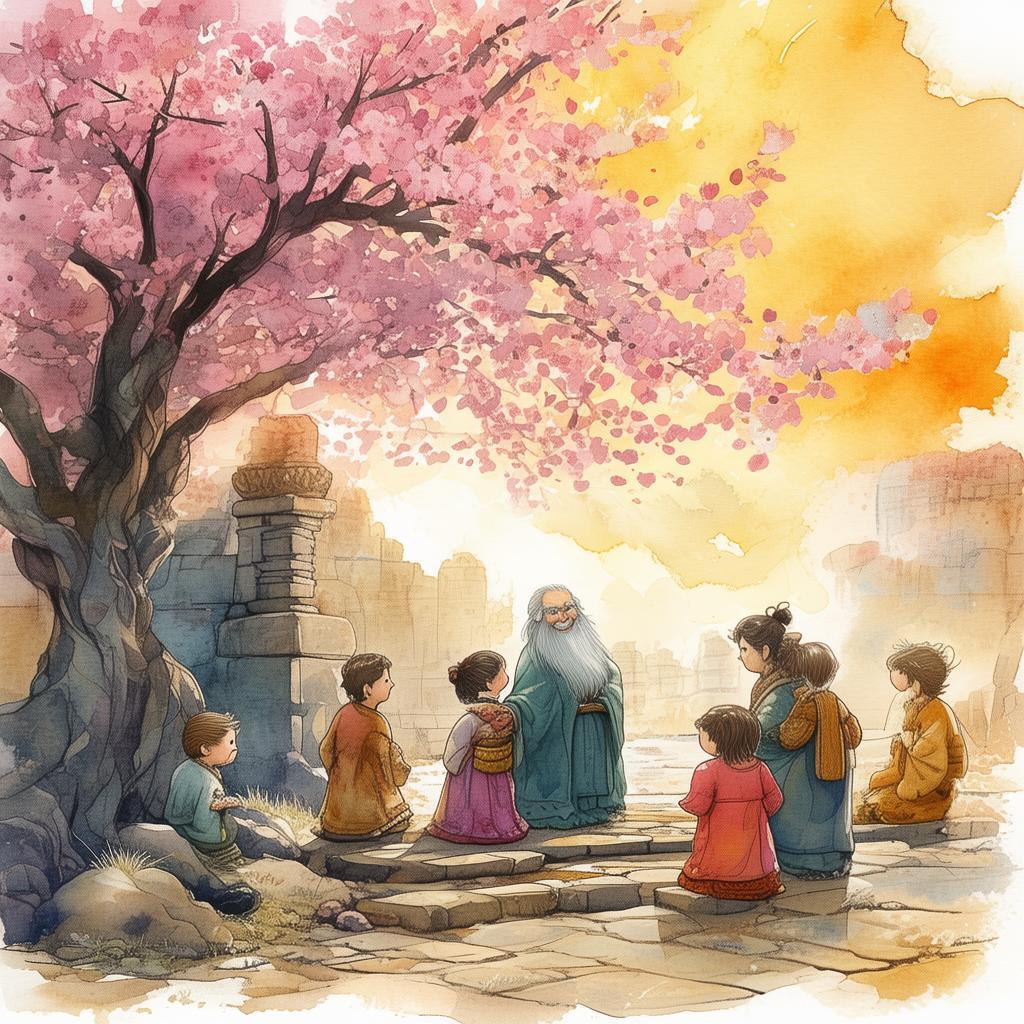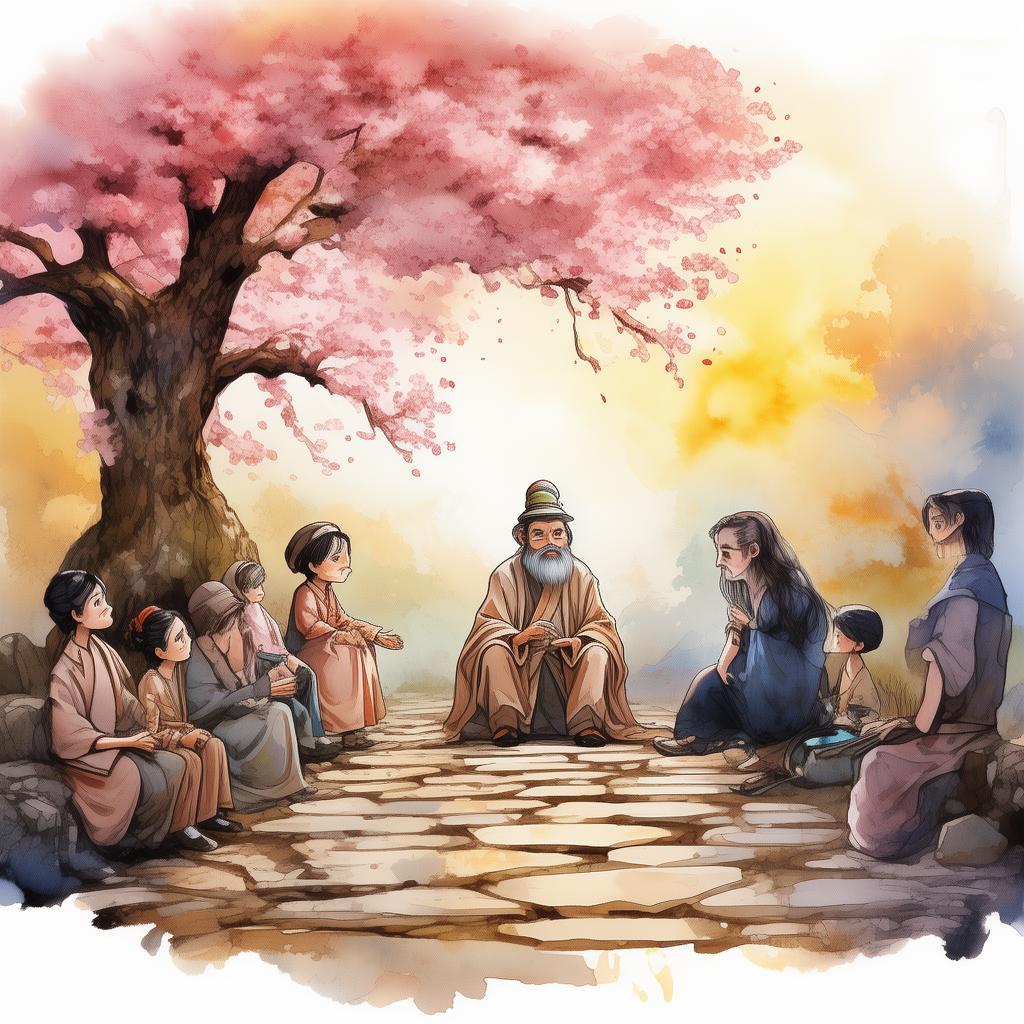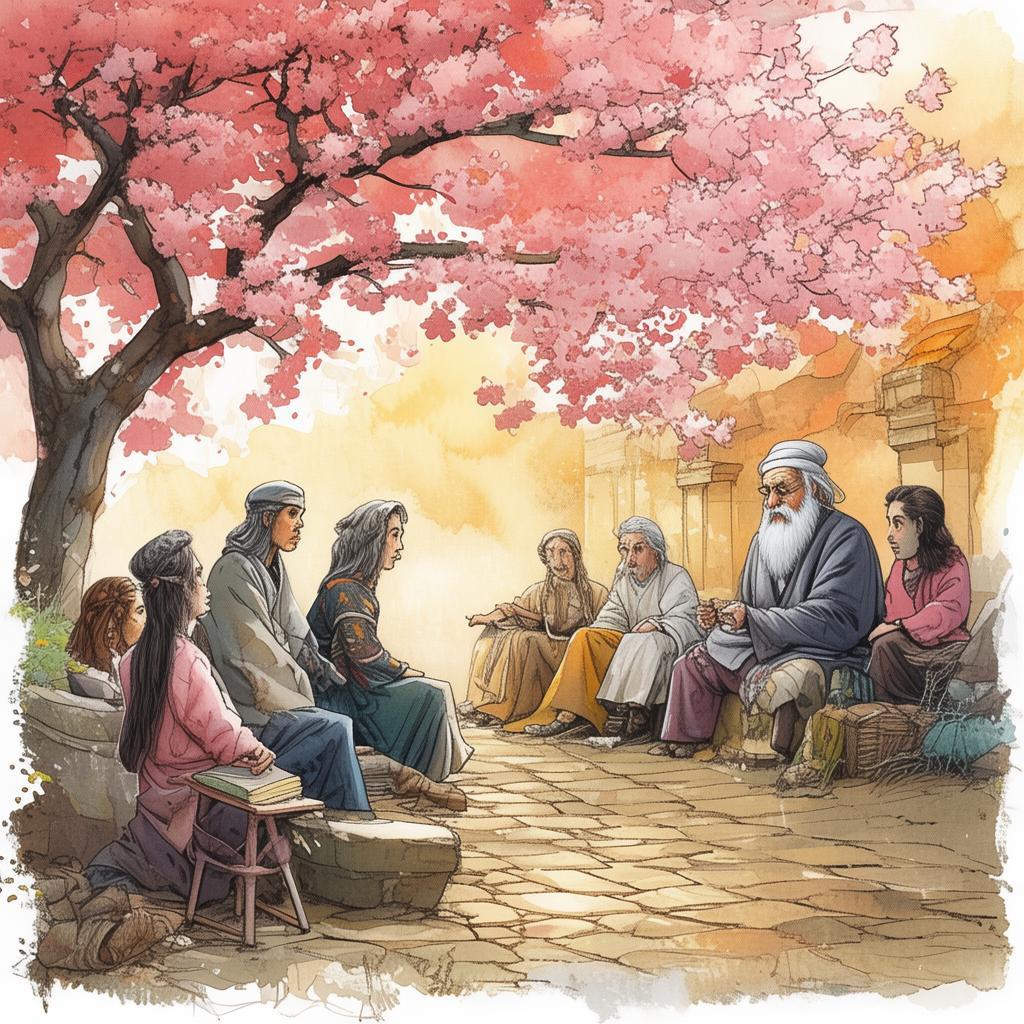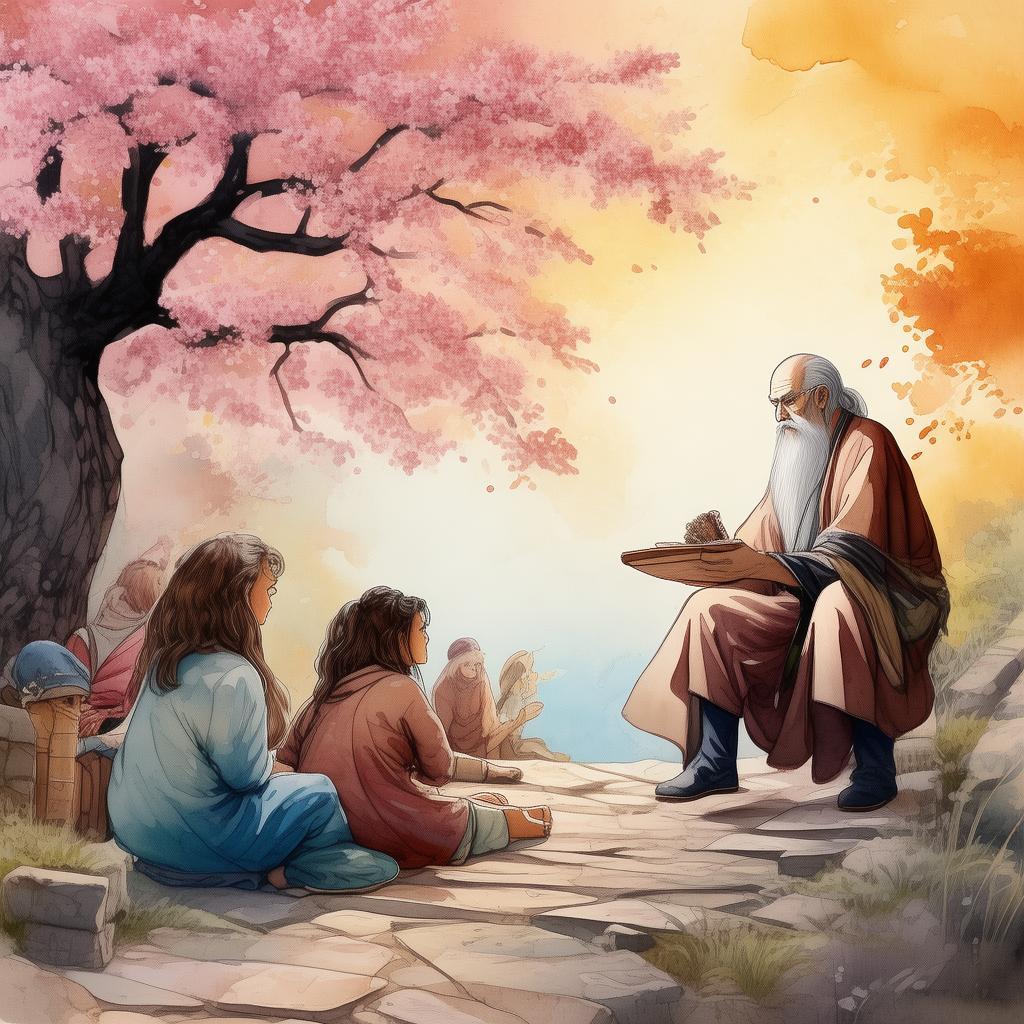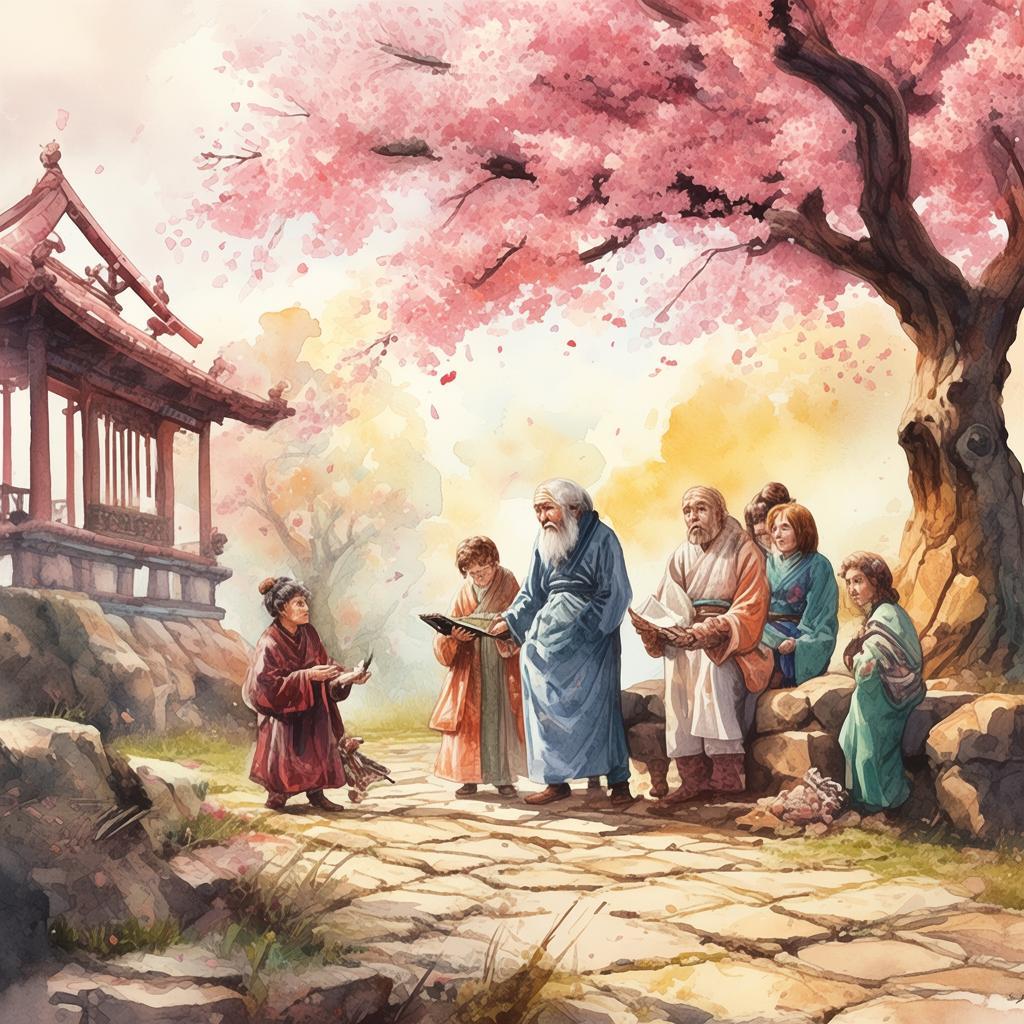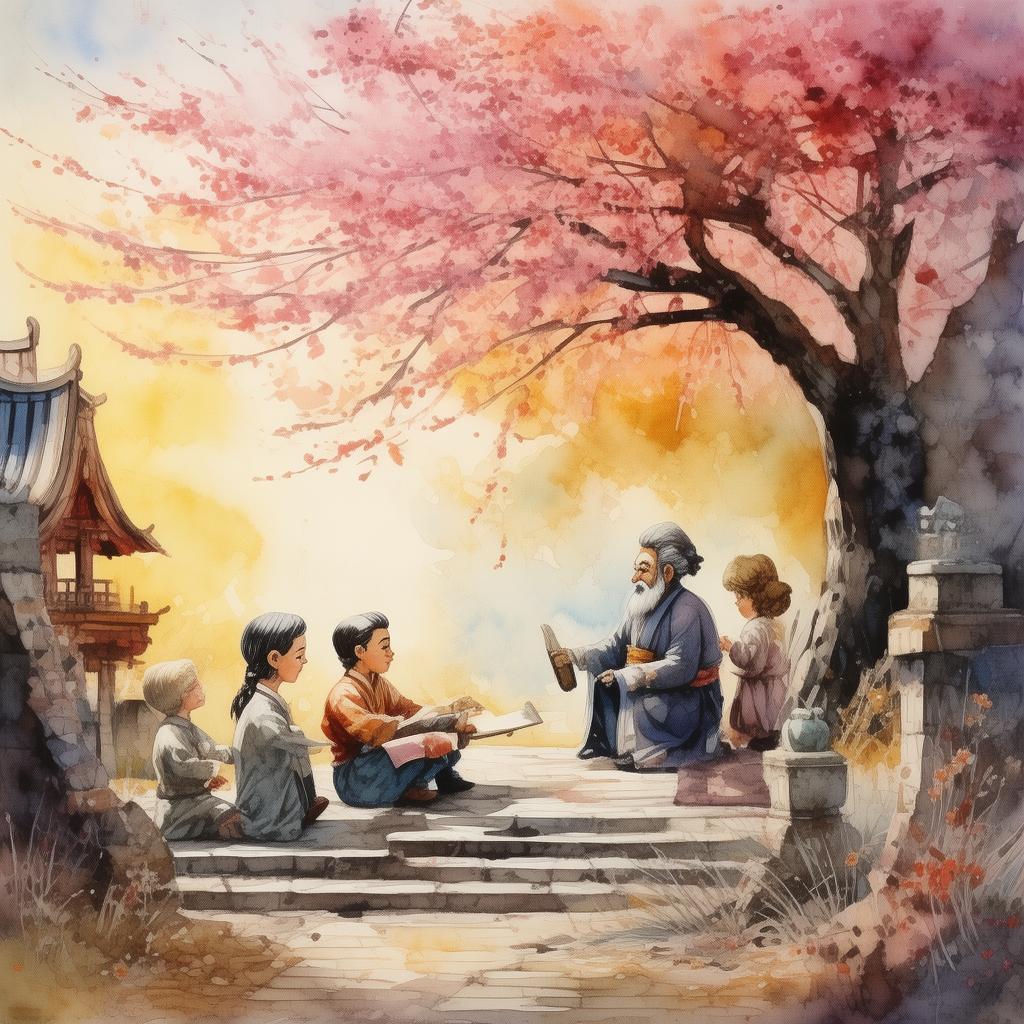Shang Dynasty's Labyrinth of Deceit
In the bustling city of Anyang during the Shang Dynasty, the air was thick with the scent of incense and the clatter of bronze. The court was a labyrinth of power, where the emperor's word was law, and loyalty was currency. Among the many courtiers was a young poet named Qing, whose verses were as sharp as his wit.
Qing was known for his talent in poetry, but he was also a man of great curiosity. He often found himself pondering the mysteries of the royal court, its intricate politics, and the enigmatic emperor. One day, a prophecy came to Qing's ears, speaking of a labyrinth hidden within the palace, a labyrinth that was said to hold the key to the throne's true power.
The prophecy read, "Whoever navigates the labyrinth and finds the heart of the truth shall reign over the land." Intrigued by the challenge and driven by a desire to uncover the truth, Qing decided to seek out the labyrinth.
As Qing ventured into the depths of the palace, he encountered a series of riddles and trials, each designed to test his intelligence and loyalty. The first trial was a riddle posed by a court sorcerer:
"The king's heart is a maze, where the path is twisted and turned.
To find the truth, you must speak the truth, or the labyrinth will burn."
Qing pondered the riddle and replied, "The king's heart is indeed a maze, but the truth is within us all. I speak the truth, and the labyrinth will reveal its heart."
The sorcerer nodded, and Qing was allowed to proceed. Next, he encountered a group of courtiers, each offering a different path to the labyrinth. Qing realized that each courtier represented a different faction within the court, and choosing the wrong path could mean his demise.
He chose the path least traveled, the one that led through the gardens where the emperor often walked in solitude. There, Qing found a hidden entrance to the labyrinth, its walls adorned with ancient carvings and cryptic symbols.
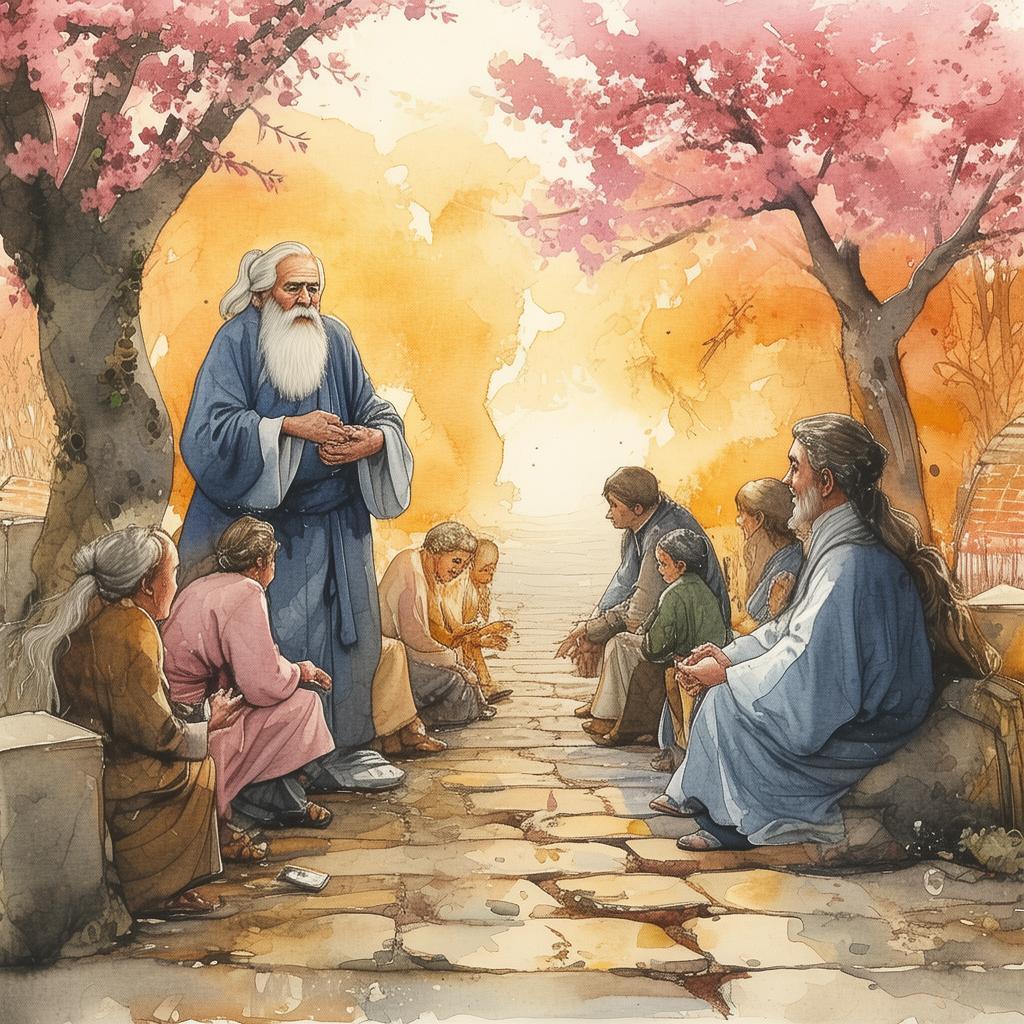
As Qing ventured deeper into the labyrinth, he encountered a series of trials, each more difficult than the last. He was forced to make difficult choices, choosing between loyalty to the court and his own moral compass. Along the way, he met a young woman named Mei, who was also searching for the truth. Mei, a loyalist to the emperor, believed that the labyrinth was a test of her faith.
Together, Qing and Mei faced the labyrinth's final trial. They were presented with two doors, one leading to a path of power and the other to a path of humility. Qing, with Mei by his side, chose the path of humility, knowing that true power lay not in wealth or authority but in truth and wisdom.
The labyrinth opened, revealing a chamber filled with scrolls and artifacts. Among them was a scroll that detailed the emperor's darkest secrets, including a conspiracy to overthrow the current ruler and install a puppet on the throne. Qing and Mei realized that the emperor, once a just and wise ruler, had been corrupted by the power he held.
With the truth uncovered, Qing and Mei had a choice to make. They could use the information to seize power for themselves, or they could reveal the truth to the emperor, hoping he would reform. After much debate, they decided to reveal the truth to the emperor.
The emperor, upon hearing the truth, was initially enraged but soon realized the extent of his own corruption. He repented and vowed to restore justice to the land. Qing and Mei were hailed as heroes, and the labyrinth became a symbol of the power of truth and the courage to seek it.
The Shang Dynasty was saved from the brink of chaos, and Qing's name was etched in history as the poet who navigated the labyrinth of deceit and brought light to the darkness. The story of Qing and Mei's bravery spread far and wide, becoming a legend that would be told for generations to come.
✨ Original Statement ✨
All articles published on this website (including but not limited to text, images, videos, and other content) are original or authorized for reposting and are protected by relevant laws. Without the explicit written permission of this website, no individual or organization may copy, modify, repost, or use the content for commercial purposes.
If you need to quote or cooperate, please contact this site for authorization. We reserve the right to pursue legal responsibility for any unauthorized use.
Hereby declared.
